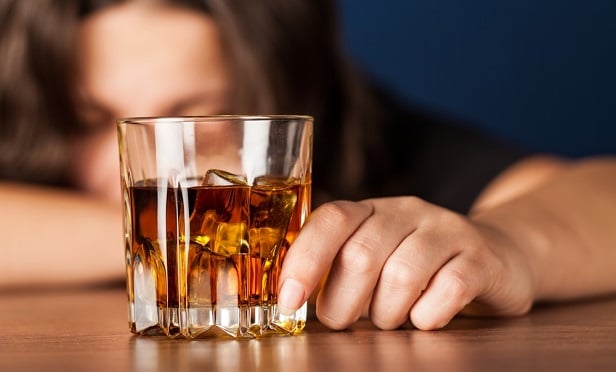
Starting a new diet in January to drop extra pounds gained during the holiday season is an annual tradition for many Americans. And now, nearly 20% of U.S. adults participate in Dry January, in part to compensate for overdoing it in December.
Research shows possible short- and long-term health benefits from this practice, although participants may not experience them right away.
Recommended For You
"You're irritable, you're a little depressed," said Sara Jo Nixon, a cognitive neuroscientist and director of the Center for Addiction Research and Education at the University of Florida. "That's in part because alcohol decreases levels of stress hormones, making you feel calm as you imbibe — but after you've stopped, the hormones rebound and spike to higher levels than before."
However, light or moderate drinkers likely will start to feel better after a few days of sobriety. Although alcohol helps people fall asleep faster, it impairs the overall quality of sleep. By not drinking, they likely will wake up each morning feeling more rested, Nixon said.
Abstaining from alcohol also reduces risks from high blood pressure, blood vessel damage, abnormal heart rhythms and potentially harmful particles called free radicals. After people stop drinking, "these free radicals start to get removed from the body, and it improves heart health," said Dr. Aitzaz Munir, an addiction psychiatrist at Rutgers New Jersey Medical School. "All these benefits start to occur from day one after the last drink."
Binge drinking also can increase the risk for liver disease, so time off can help it heal. "Once a person stops drinking, the liver enzymes start to drop, and within a month or two they are back to their normal levels if there is not too much damage," Munir said.
Psychologically, Dry January helps break ingrained drinking habits, such as a having a glass of wine every day after work. Six months after Dry January, participants drank alcohol on average one fewer day per week and consumed nearly one fewer drink less on the day they did drink, compared with their alcohol use before the break, a 2016 British study found.
What happens when people resume their previous drinking habits next month? Because their month of abstinence is likely to decrease their alcohol tolerance, they won't need to drink as much to feel the way they previously did. Quitting, even temporarily, often prompts people to ask themselves "Why am I drinking this amount? Does it play a role in how I feel? Do I think I need it?" Nixon said.
© 2025 ALM Global, LLC, All Rights Reserved. Request academic re-use from www.copyright.com. All other uses, submit a request to [email protected]. For more information visit Asset & Logo Licensing.








